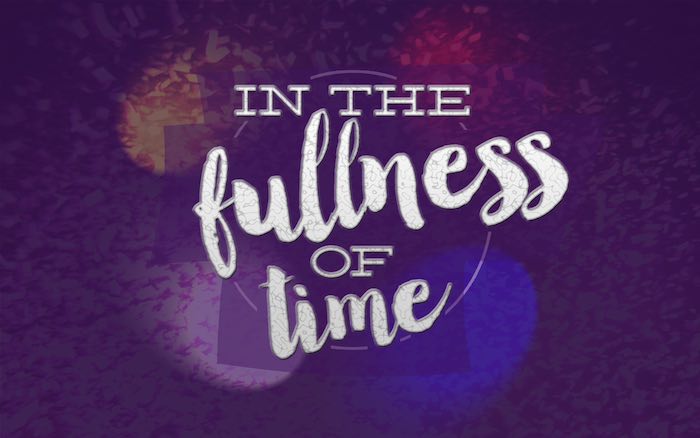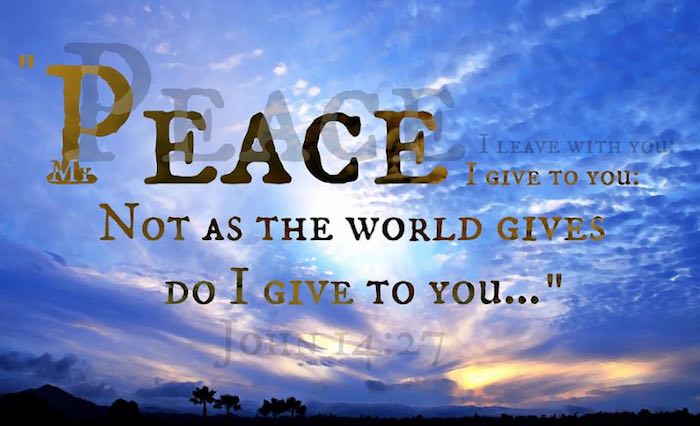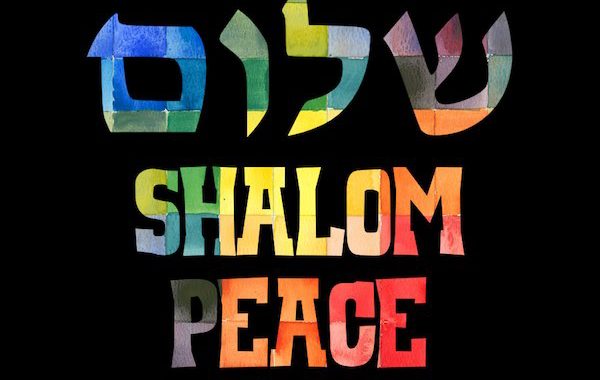Moses entered the world at what seems like one of the worst possible times in history. The people of Israel were living as slaves under the tyranny of the Egyptians and the king of Egypt was making their lives more difficult day by day. Before Moses was born, the following decree was put forth by Pharaoh:
Then Pharaoh commanded all his people, saying, “Every son who is born you are to cast into the Nile, and every daughter you are to keep alive.” – Ex. 1:22
All male children of the Israelites were to be killed by being thrown into the Nile River. It was during the days of this decree that Moses’s mother became pregnant with him and he came into the world to face a cruel reality.
After Moses was born, his mother did her best to hide him, however, at the end of three months there was nothing else left for her to do. The decree to kill all male children was clear and she could no longer hide the fact that she gave birth to a male child. It was at this time that his mother took a wicker basket and made it waterproof. She then put Moses in the basket and set the basket on the Nile River, fulfilling the decree of Pharaoh but still giving her son a chance to live (Ex. 2:1-4).
The hand of God was with Moses at this vulnerable stage of his life. God had brought Pharaoh’s daughter down to the river at the exact time that baby Moses was floating near by in his basket. Pharaoh’s daughter heard the child crying and she had one of her maids bring the child to her. Upon seeing the child, Pharaoh’s daughter decided to make Moses her own son. Pharaoh’s daughter paid a Hebrew slave woman (Moses’ mother) to nurse Moses and then she took him as her son and raised him in royalty (Ex. 2:5-10).
Although Moses was raised in the seclusion of Pharaoh’s court, he knew his identity as a Hebrew and identified with his people. Moses took action as an adult to defend his Hebrew brethren and even killed an Egyptian who was beating a Hebrew slave. As a result of Moses’ action against the Egyptians, Pharaoh sought to kill him. Moses escaped from Egypt at that time and lived in the land of Midian (Ex. 2:11-15).
Moses lived as a refugee in Midian where he found solace in the home of the priest of Midian, Reuel or better known as Jethro. Moses married one of Reuel’s daughters and worked for Reuel by shepherding his flocks. I’m sure that there wasn’t a day that went by that Moses didn’t think about his life in Egypt, and especially his family and the Hebrew people living there as slaves.
God’s Timing
The children of Israel had been living in Egypt for four hundred years and for a good portion of this time they were living as slaves. It must have seemed like there was no escape from the Egyptian tyranny, however, it was at this particular moment in time that God emerged on the scene and took action to deliver His people:
Now it came about in the course of those many days that the king of Egypt died. And the sons of Israel sighed because of the bondage, and they cried out; and their cry for help because of their bondage rose up to God. So God heard their groaning; and God remembered His covenant with Abraham, Isaac, and Jacob. God saw the sons of Israel, and God took notice of them. – Ex. 2:23-25
The cry of the people of Israel had finally reached the ears of God.
When God heard the cry of His people we read that God responded in a four-fold manner; “וישמע” – “va’yishma” – He heard their groaning, “ויזכור” – “va’yizkor” – He remembered His covenant, “וירא” – “va’yar” – He saw the sons of Israel, “וידע” – “va’yeda” – and He took notice of them or literally, “He knew them.” God was fully alert, He understood the situation of the Israelites, and He was ready to take action on behalf of His people.

The Fullness of Time
God’s response to the cry of His people was not haphazard or coincidental. God had told Abraham, before the children of Israel ever went down to Egypt, that they would be enslaved for four hundred years, as we read in the book of Genesis:
Now when the sun was going down, a deep sleep fell upon Abram; and behold, terror and great darkness fell upon him. God said to Abram, “Know for certain that your descendants will be strangers in a land that is not theirs, where they will be enslaved and oppressed four hundred years. But I will also judge the nation whom they will serve, and afterward they will come out with many possessions.” – Gen. 15:12-14
God was about to fulfill His word and His covenant which He had spoken to Abraham. The four hundred years of oppression were coming to an end and God was going to judge the Egyptians and deliver His people.
The fullness of the time had come and God was ready to act and to carry out His word. It was at this time that God spoke to Moses from the burning bush and called him into his destiny (Ex. 3:1-12). At first Moses struggled with God and made excuse after excuse as to why not to carry out the LORD’s call on his life, however, Moses eventually gave in to God’s request when God promised to send his brother Aaron along with him.
The Human Struggle
Moses and Aaron went to Egypt and began to take steps in order to set the people free, however as a result of their actions, Pharaoh made the Israelites’ work harder and the people became angry at Moses and Aaron. The Israelite leaders came to Moses and Aaron and spoke these words:
When they left Pharaoh’s presence, they met Moses and Aaron as they were waiting for them. They said to them, “May the LORD look upon you and judge you, for you have made us odious in Pharaoh’s sight and in the sight of his servants, to put a sword in their hand to kill us.” – Ex. 5:20-21
As a result of this backlash from his own people, Moses became disheartened and questioned God’s plan to set the people free:
Then Moses returned to the LORD and said, “O LORD, why have You brought harm to this people? Why did You ever send me? Ever since I came to Pharaoh to speak in Your name, he has done harm to this people, and You have not delivered Your people at all.” – Ex. 5:22-23
Both Moses and the people struggled to understand God’s timing to deliver them. They expected instant results and they saw no human way out of their dire situation.
Moses was still learning to walk with God and to listen to His voice at that time, however, just when Moses was ready to give up, the LORD spoke these words to Moses:
Then the LORD said to Moses, “Now you shall see what I will do to Pharaoh; for under compulsion he will let them go, and under compulsion he will drive them out of his land.” – Ex. 6:1
God had a plan and God was going to teach Pharaoh a lesson of who is really in control. God eventually proved Himself to Moses and to the people as God used Moses to display His signs and wonders before Pharaoh and the Egyptians just as He said that He would.
Just as it was difficult for Moses and the Israelites to understand God’s deliverance at that time, it can be challenging for us to understand God’s timing and His ways. The conditions that surround us in this world today can seem overwhelming and we can feel hopeless in our situations personally as well as nationally and even globally as the people of God.
The Walk of Faith
It is in times like these that we are called to walk in faith and to rise above our feelings, our emotions, and our inability to see past today, as we read in the letter to the Hebrews: “Now faith is the assurance of things hoped for, the conviction of things not seen. For by it the men of old gained approval.” (Hebrews 11:1) The walk of faith with God takes us beyond what we see with our eyes in this world to the realm of the supernatural, trusting in God for the things unseen and believing that God will fulfill His word.
The life of Moses is a testimony of a man, a family, and a nation that dared to walk by faith with the living God. We continue to read in the letter to the Hebrews how the life of Moses was marked by faith beginning with his parents decision to save his life in defiance of the law of the land:
By faith Moses, when he was born, was hidden for three months by his parents, because they saw he was a beautiful child; and they were not afraid of the king’s edict. By faith Moses, when he had grown up, refused to be called the son of Pharaoh’s daughter, choosing rather to endure ill-treatment with the people of God than to enjoy the passing pleasures of sin, considering the reproach of the Messiah greater riches than the treasures of Egypt; for he was looking to the reward. By faith he left Egypt, not fearing the wrath of the king; for he endured, as seeing Him who is unseen. By faith he kept the Passover and the sprinkling of the blood, so that he who destroyed the firstborn would not touch them. By faith they passed through the Red Sea as though they were passing through dry land; and the Egyptians, when they attempted it, were drowned. – Hebrews 11:23-29
Moses, his family, and the nation of Israel walked in faith with God step by step as He spoke to them and led them forward. God acted on behalf of Moses and the Israelites according to His prophetic word and His faithful character.
The Nation of Israel Today
As I write this week’s commentary for the Torah Portion, the nation of Israel, which was re-established in 1948 and further expanded its territory in the Six-Day War of 1967, continues to exist and thrive despite the numerous enemies which surround her and the political pressure of the UN and others which want to control and oppress her. Just this past month (Dec. 23, 2016) the UN Security Council passed another resolution against Israel which condemns the nation of Israel’s right to build on the Land of Israel. They also failed to recognize Israel’s legal right over Jerusalem as its capital and demand that Israel return “East Jerusalem” to the “Palestinians,” according to the pre-June 4, 1967 lines. Read more about this UN Resolution: Israel’s Settlements
This past Sunday (January 15, 2017), there was a meeting in Paris of delegates from over 70 countries from around the world that met to discuss the way forward for Middle East peace between Israel and the Palestinians. They signed a declaration calling for the two parties to do all in their power to end the conflict in the Middle East and to reach a “Two-State” solution for the establishing of viable future for both peoples. This declaration continues to deny Jerusalem as the capital of the nation of Israel and demands an end to the “occupation of Jerusalem” by the Israelis. Read the full text of the Paris Peace Declaration: Paris Declaration
As the new US administration under President Trump begins to take office this Friday, January 20, 2017, there is talk of the US moving its Embassy in Israel from Tel Aviv to Jerusalem. This is a political statement declaring that the USA accepts Jerusalem as the Israeli Capital. The head of the EU and other political leaders are warning the US not to go forward with this move citing that it will disrupt the “peace process.”

Egypt & The World Powers
As I reflect on this week’s Torah Portion I’m reminded that opposition to God’s plans for His people and the nation of Israel will be continually opposed by the leaders of the world, unless they fear God and believe in His word. God has chosen the people of Israel and the city of Jerusalem to represent Him in this world and He will bring to completion every promise and every prophecy regarding Jerusalem and the Jewish people. Just as God fulfilled His covenant to Abraham by bringing the nation of Israel out of Egypt and into the Promised Land, so He will fulfill every prophecy yet to be fulfilled, especially concerning Jerusalem and the nation of Israel.
The Bible clearly states that in the end of days that the LORD Himself will come to judge the nations of the earth who have conspired against the people and land of Israel:
For behold, in those days and at that time, when I restore the fortunes of Judah and Jerusalem, I will gather all the nations and bring them down to the valley of Jehoshaphat. Then I will enter into judgment with them there on behalf of My people and My inheritance, Israel, whom they have scattered among the nations; and they have divided up My land. – Joel 3:1-2
The Land and people of Israel are not just biblical concepts, they are considered the personal possession of Almighty God. This is why there is a constant struggle over Jerusalem, the nation of Israel, and the Jewish people.
There is still a time to come when every word of God will be fulfilled, like the prophecy from Joel quoted above. We also read another prophecy which is taken from this week’s corresponding reading from the prophets in the book of Isaiah regarding Jerusalem and the people of Israel that will take place in the end of days:
In that day the LORD will start His threshing from the flowing stream of the Euphrates to the brook of Egypt, and you will be gathered up one by one, O sons of Israel. It will come about also in that day that a great trumpet will be blown, and those who were perishing in the land of Assyria and who were scattered in the land of Egypt will come and worship the LORD in the holy mountain at Jerusalem. – Isaiah 27:12-13
A future day of restoration is coming for the city of Jerusalem when the Messiah will reign in that city. After the day of great judgement on the earth, the Messiah will take His seat in Jerusalem and all nations will worship the LORD there (Zech. 14:9-19).

True Peace
As the UN, the EU, the US, and others talk about bringing peace to the Middle East there is one thing for sure; true peace cannot be made by human institutions alone. Moses discovered this in his day and we would be wise to follow in his example and walk according to the word and voice of the LORD today.
True peace is only found in God Himself through the Messiah. Yeshua spoke these words to His disciples before He was crucified:
These things I have spoken to you, so that in Me you may have peace. In the world you have tribulation, but take courage; I have overcome the world. – John 16:33
This world is filled with many hardships and disappointments and we can never place our hopes for peace solely in the people or governments of this world. God alone is our hope. Both personal and world peace is only found in God’s Anointed One, Yeshua the Messiah!
Shabbat Shalom,
If you enjoyed reading this article, share it today with friends! We also invite you to sign up for our weekly Torah Portion commentary on the sidebar to the right.
Help keep our weekly commentaries free and available to all. Click here to donate today:
Torah Portion: Ex. 1:1 – Ex. 6:1
Haftara: Isaiah 27:6 – Isaiah 28:13. 29:22-23
Return to Torah Portion Homepage
Copyright Jewels of Judaism. All rights reserved 2017


